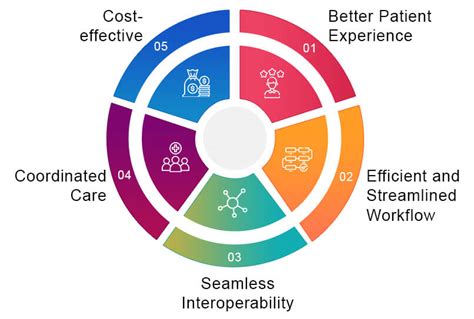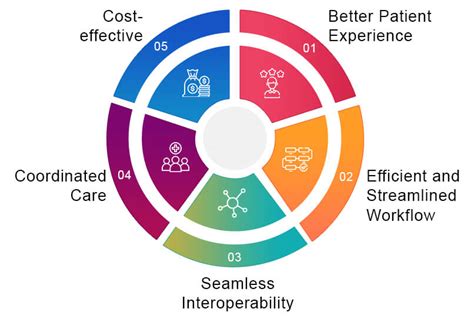Intro
Discover the future of healthcare in our in-depth guide to adapting to integrated healthcare for whole person wellness. Learn how this holistic approach combines physical, emotional, and social care to promote overall well-being. Explore the benefits, challenges, and innovative solutions shaping the integrated healthcare landscape, and how its revolutionizing the way we approach health and wellness.
The healthcare landscape is undergoing a significant transformation, shifting from a traditional, fragmented approach to a more comprehensive and integrated model that prioritizes whole person wellness. This seismic shift is driven by the growing recognition that physical health is intricately linked to mental, emotional, and social well-being. As the healthcare industry continues to evolve, it's essential for healthcare providers, patients, and families to adapt to this new paradigm and understand the benefits and implications of integrated healthcare.
The importance of integrated healthcare cannot be overstated. By addressing the whole person – body, mind, and spirit – healthcare providers can deliver more effective, patient-centered care that improves outcomes, enhances the patient experience, and reduces costs. This approach also acknowledges that healthcare is not solely the responsibility of medical professionals, but rather a collaborative effort that involves patients, families, and communities.

What is Integrated Healthcare?
Integrated healthcare is an approach that combines multiple healthcare disciplines and services to provide comprehensive, coordinated care. This model brings together medical, behavioral, and social health services to address the physical, emotional, and social needs of patients. Integrated healthcare teams may include primary care physicians, specialists, nurses, mental health professionals, social workers, and other healthcare providers who work together to develop personalized care plans.
Key Principles of Integrated Healthcare
- Patient-centered care: Integrated healthcare prioritizes patient needs, preferences, and values, ensuring that care is tailored to each individual's unique circumstances.
- Collaboration and communication: Healthcare providers work together, sharing information and coordinating care to ensure seamless transitions and comprehensive support.
- Comprehensive care: Integrated healthcare addresses the whole person, incorporating physical, emotional, and social health services to promote overall well-being.
- Coordinated care: Care is coordinated across multiple settings, including primary care, specialty care, hospitals, and community-based services.
- Evidence-based practice: Integrated healthcare is grounded in evidence-based practice, ensuring that care is informed by the latest research and best practices.
Benefits of Integrated Healthcare
The benefits of integrated healthcare are numerous and far-reaching. Some of the most significant advantages include:
- Improved health outcomes: Integrated healthcare has been shown to improve health outcomes, reduce hospitalizations, and decrease mortality rates.
- Enhanced patient experience: Patients report higher satisfaction rates and improved quality of life when receiving integrated care.
- Reduced costs: Coordinated care and reduced fragmentation can lead to cost savings and more efficient use of healthcare resources.
- Increased patient engagement: Integrated healthcare encourages patient engagement and empowerment, leading to better health literacy and self-management.

Implementing Integrated Healthcare
Implementing integrated healthcare requires a fundamental transformation of the healthcare delivery system. Some key strategies for successful implementation include:
- Developing interdisciplinary teams: Assemble teams of healthcare providers from diverse disciplines to work together and share knowledge.
- Implementing care coordination: Establish care coordination processes to ensure seamless transitions and comprehensive support.
- Leveraging technology: Utilize technology, such as electronic health records and telehealth, to facilitate communication and coordination.
- Fostering patient engagement: Encourage patient engagement and empowerment through education, support, and self-management tools.
Overcoming Challenges
While integrated healthcare offers numerous benefits, there are also challenges to implementation. Some of the most significant obstacles include:
- Resistance to change: Healthcare providers and organizations may resist changes to traditional care delivery models.
- Financial constraints: Implementing integrated healthcare may require significant investment in new technologies, personnel, and infrastructure.
- Regulatory barriers: Existing regulations and payment structures may not support integrated care models.

Future Directions
As the healthcare industry continues to evolve, it's essential to consider future directions for integrated healthcare. Some potential areas of focus include:
- Value-based payment: Shifting payment structures to reward value-based care and population health management.
- Technology innovation: Leveraging emerging technologies, such as artificial intelligence and blockchain, to enhance care coordination and patient engagement.
- Social determinants of health: Addressing social determinants of health, such as housing and food insecurity, to promote whole person wellness.

Conclusion
Adapting to integrated healthcare requires a fundamental shift in how we approach healthcare delivery. By prioritizing whole person wellness, fostering collaboration and communication, and leveraging technology and innovation, we can create a more effective, patient-centered healthcare system. As we move forward, it's essential to address the challenges and complexities of integrated healthcare, while also embracing the opportunities and benefits that this approach offers.
We invite you to share your thoughts and experiences with integrated healthcare in the comments below. How do you think we can best support the adoption of integrated healthcare, and what benefits or challenges have you encountered in your own healthcare journey?
What is integrated healthcare?
+Integrated healthcare is an approach that combines multiple healthcare disciplines and services to provide comprehensive, coordinated care.
What are the benefits of integrated healthcare?
+The benefits of integrated healthcare include improved health outcomes, enhanced patient experience, reduced costs, and increased patient engagement.
What are the challenges of implementing integrated healthcare?
+Challenges to implementing integrated healthcare include resistance to change, financial constraints, and regulatory barriers.
